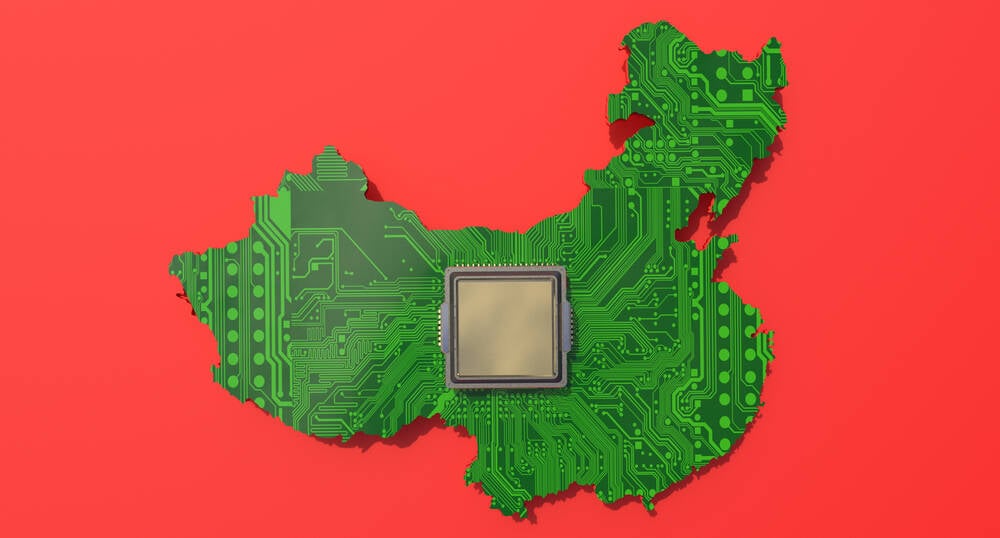China's Top RISC-V Players Form Patent Alliance

Nine of China's most prominent explorers and purveyors of processors built on the permissively licensed RISC-V architecture have formed a patent alliance.
Multiple reports in Chinese media state that the China RISC-V Industry Alliance unveiled its initiative at a conference this week.
Members of the patent alliance include VeriSilicon Microelectronics, Xinlai Technology, Alibaba-linked Pingtouge (aka T-Head), Shanghai Saifang Technology, Shanghai Shiqing Technology, Juquan Optoelectronics, Shanghai Hengrui Intellectual Property Services Co., Ltd., and Xinsiyuan Microelectronics.
The Register has asked the Industry Alliance and some of its members for details of how the group will operate, and what membership of the group will entail. We've not received a reply at the time of writing.
Chinese media, however, have referenced Microsoft's sharing of Linux patents. That effort sees the software giant join over 3,800 entities as a member of the Open Invention Network – an outfit that cross-licenses over 3,700 patents related to core Linux and Open Source Software (OSS) packages. The Network aims to assist members to use open source software without having to worry that doing so could result in litigation, in the hope that developers put code to work and innovation flourishes.
If China's RISC-V champs adopt a similar approach, it will mean all can benefit from the work of their peers without fear of China's courts becoming involved. Which would in turn mean China's top chip design outfits could perhaps move faster as they seek to create RISC-V designs that allow the Middle Kingdom to develop indigenous semiconductors that compete with those built elsewhere.
- Big chip players join forces to form another RISC-V venture
- Chinese web giant Baidu backs RISC-V for the datacenter
- Enter Tinker: Asus pulls out RISC-V board it hopes trumps Raspberry PI
- Xen hypervisor port to RISC-V moving – slowly, but moving
Matching the capabilities of non-Chinese designs matters, because international sanctions on China mean top chipmakers can't sell their finest wares in the Middle Kingdom. US-based chip designer AMD, for example, plans to create less powerful products that it will be allowed to sell in China without approval from US authorities.
China's government has sweeping ambitions to use AI and advanced analytics across the public and private sectors. Those plans are a harder to realize with second-rate silicon.
If China's top chip shops can share IP, the prospect of locally created silicon catching up with offshore rivals looks a little more plausible.
It's worth remembering that RISC-V is not maximally open source. As RISC-V International – the org that oversees the tech – explains in its FAQ, the source code of projects that use the RISC-V instruction set architecture (ISA) "can be completely closed."
"The RISC-V ISA is free and open with a permissive license for use by anyone in all types of implementations," the FAQ states, adding "Designers are free to develop proprietary or open source implementations for commercial or other exploitations as they see fit."
It's also worth noting that RISC-V International hosts an antitrust page that points out "Meetings and other activities of RISC-V necessarily involve participation by industry competitors and/or customers and partners common to competitors and it is the express policy of RISC-V to require that all of its activities be conducted strictly in accordance with applicable antitrust laws."
China's RISC-V players will therefore need to ensure their patent pact doesn't take on any of the qualities of a cartel. ®
From Chip War To Cloud War: The Next Frontier In Global Tech Competition
The global chip war, characterized by intense competition among nations and corporations for supremacy in semiconductor ... Read more
The High Stakes Of Tech Regulation: Security Risks And Market Dynamics
The influence of tech giants in the global economy continues to grow, raising crucial questions about how to balance sec... Read more
The Tyranny Of Instagram Interiors: Why It's Time To Break Free From Algorithm-Driven Aesthetics
Instagram has become a dominant force in shaping interior design trends, offering a seemingly endless stream of inspirat... Read more
The Data Crunch In AI: Strategies For Sustainability
Exploring solutions to the imminent exhaustion of internet data for AI training.As the artificial intelligence (AI) indu... Read more
Google Abandons Four-Year Effort To Remove Cookies From Chrome Browser
After four years of dedicated effort, Google has decided to abandon its plan to remove third-party cookies from its Chro... Read more
LinkedIn Embraces AI And Gamification To Drive User Engagement And Revenue
In an effort to tackle slowing revenue growth and enhance user engagement, LinkedIn is turning to artificial intelligenc... Read more

